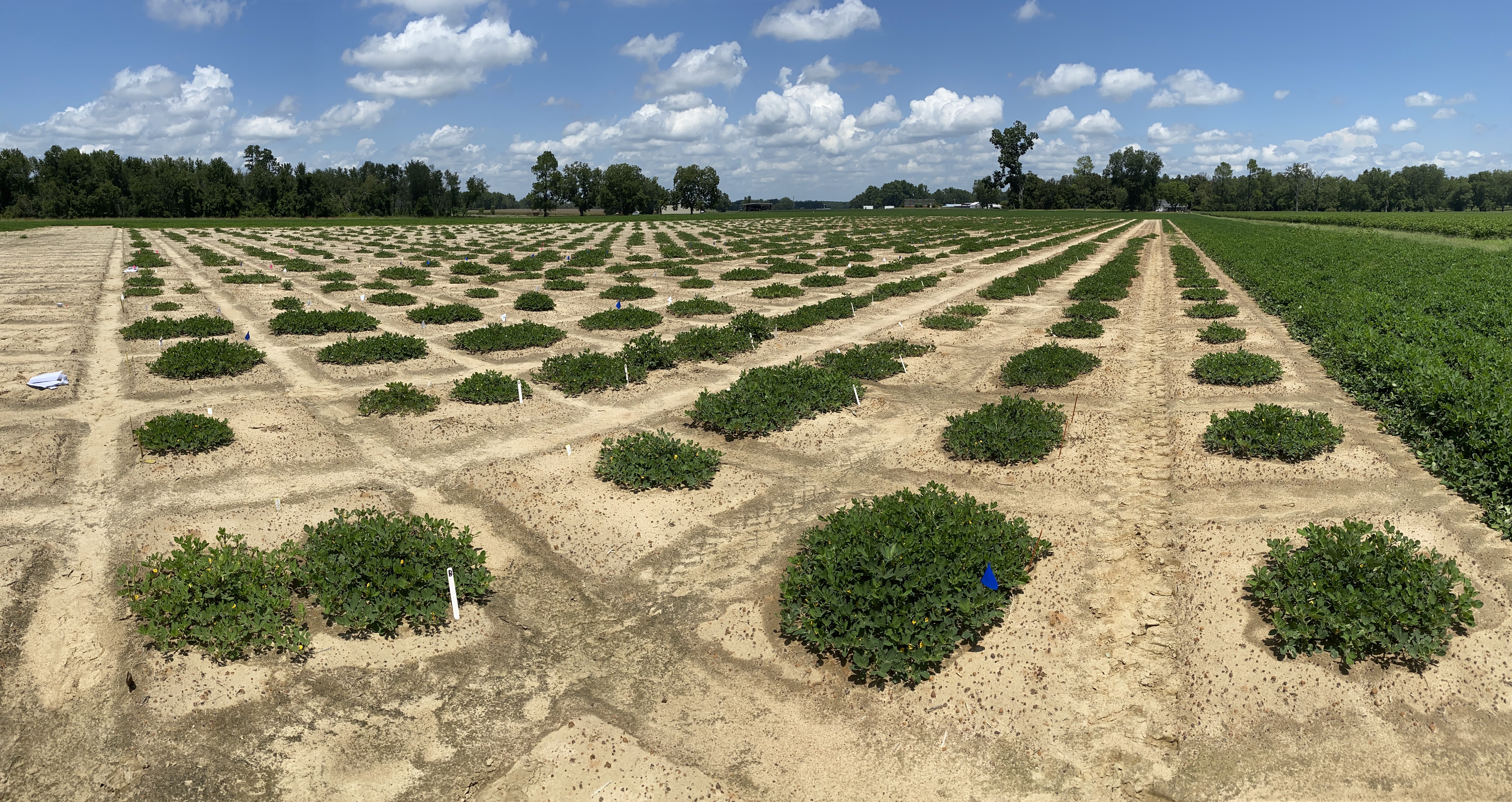Advanced Peanut Genetics
Peanut is a valuable crop but is plagued by diseases and pests. In the U.S. the use of chemical control accounts for over 30 percent of the total cost of crop production. Genetic resistance is the most favorable form of control, but peanut has an exceptionally narrow genetic base and poor sources of resistance to many pests and pathogens. Fortunately, wild peanut species harbor very strong resistances to diseases and pests and adaptation to environmental stresses, which cannot be found in cultivated peanuts. In 2019 UGA crop and soil scientists led an international consortium that sequenced the peanut genome, creating a common internationally recognized reference for peanut genetics. Using this, together with a vastly improved knowledge base of the relationships of wild and cultivated peanut species, they have been incorporating very strong pest and disease resistances from wild peanut species into elite field peanuts. The sequenced peanut genome provides a framework for research results from all over the world to be directly compared, within a context of more than 66,000 genes, identified and characterized within their chromosomal context. This is leveraging research in the U.S. and the world, generating more knowledge and benefits, pure and applied. This work with wild peanut species has now generated peanut lines that are 95 percent or more elite peanut genetics, with 5 percent or less wild species that confers pest and disease resistance. Collaboration with peanut breeding programs in the U.S., Brazil, Senegal and Uganda is incorporating these wild species-derived traits into elite local peanut varieties using a combination of traditional breeding and selection using DNA markers. So far, six new varieties have been released in Senegal and three in Brazil. New improved varieties are expected soon in the U.S. This will reduce farmer costs, increase yield, reduce fuel use and lower the environmental impact of farming.
Read the full impact statement
Related Impact for Plant Production
- Completing the peanut genome sequence 2020
- Determining Best-performing Crop Cultivars 2020
- Georgia Grown Lavender 2020
- New Ornamental Plants 2020
- Peanut seed treatment crisis 2020
- Phony Peach Disease 2020
- Plant Molecular Diagnostic Lab 2020
- Spotted-Wing Drosophila in Blueberries 2020
- Turfgrass Physiology 2020

